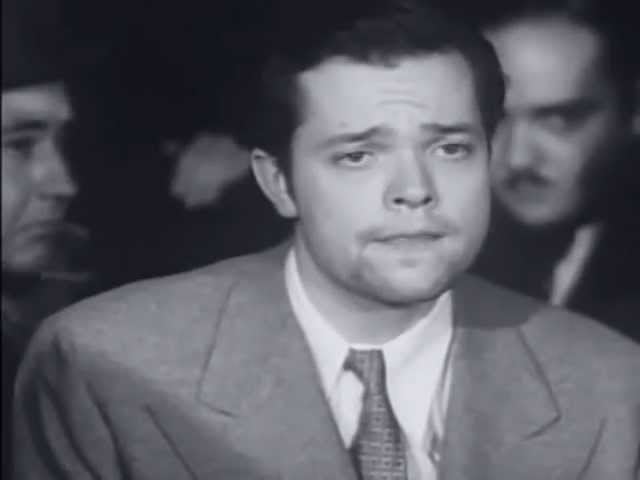Orson Welles’ 1942 film The Magnificent Ambersons has a complicated legacy—both considered one of the greatest films of all time and a complete mess that saw the iconic director’s vision stifled by his studio and the original cut destroyed. Somehow, the AI guys have decided that’s their signal to get involved.
According to The Hollywood Reporter, an Amazon-backed generative AI company called Showrunner, the creators of a streaming service that lets subscribers create their own episodes of shows, plan to attempt to recreate Welles’ original cut of the film, which is thought to largely be lost. What happened to Welles’ version of The Magnificent Ambersons is a Hollywood tragedy. His 131-minute epic and follow-up to Citizen Kane failed to resonate with test audiences, leading to the studio taking control of the edit and ultimately slashing more than 40 minutes of the film, leaving only 13 of 73 scenes untouched.
To add injury to insult, the studio also burned the negatives of Welles’ edit to re-use the silver and store other films. Welles kept extremely well-documented notes on the film, including diagrams of where he wanted to place the camera and how he wanted scenes to look. Welles even planned on re-shooting the ending, which the studio cut, nearly 30 years after the fact, but it never came together, according to the 1992 biography “This Is Orson Welles.”
Using AI to “recreate” that footage doesn’t quite feel like the way to lessen the tragedy. According to THR, Showrunner plans to spend the next two years trying to reconstruct the scenes that were lost to the studio’s overeager scissors. The company reportedly plans to reshoot some scenes with live actors and use AI to face-swap the original actors’ appearances onto the stand-ins. That’s probably better than going full AI; no one needs to see Joseph Cotten with six fingers.
Showrunner is tapping Brian Rose, a filmmaker who has dedicated himself to recreating the missing frames, to lead the effort. Rose has previously used 3D modeling techniques and animation to reconstruct parts of the film and screened his artistic rendition of the film at the Free Library of Philadelphia. Now he’ll be using his extensive notes for the project to re-create it with AI, despite the use of AI in film preservation and restoration remaining quite controversial.
The company won’t commercialize the final product because it can’t—it did not obtain the rights to the film from Warner Bros. Discovery or Concord. “The goal isn’t to commercialize the 43 minutes, but to see them exist in the world after 80 years of people asking, ‘might this have been the best film ever made in its original form,’” CEO Edward Saatchi told The Hollywood Reporter.
Showrunner’s effort is far from the only attempt to recover Welles’ work; it’s just that everyone else wants the real thing. Filmmaker Joshua Grossberg has been on a multi-year mission to track down what he believes to be the last existing copy of Welles’ original edit, which has taken him to Brazil, where Welles was apparently working during the editing process. The hunt will be featured in the upcoming documentary, “The Lost Print: The Making of Orson Welles The Magnificent Ambersons,” and while the director is being tight-lipped about what he found, he’s promising to provide “some answers as to the fate of the print.”
As to what Welles would think of the AI reconstruction, well, it’s a bit complicated. His estate recently gave an audio company permission to recreate his iconic voice using AI to narrate stories, and the company behind the effort argued he would approve because “Orson Welles was a futurist.” But Welles was also quite critical of the uninterrupted invasion of technology into our lives, narrating a 1972 documentary called “Future Shock” in which he says, “Our modern technologies have changed the degree of sophistication beyond our wildest dreams. But this technology has exacted a pretty heavy price. We live in an age of anxiety and time of stress. And with all our sophistication, we are in fact the victims of our own technological strengths.” That certainly still feels relevant.
Read the full article here












